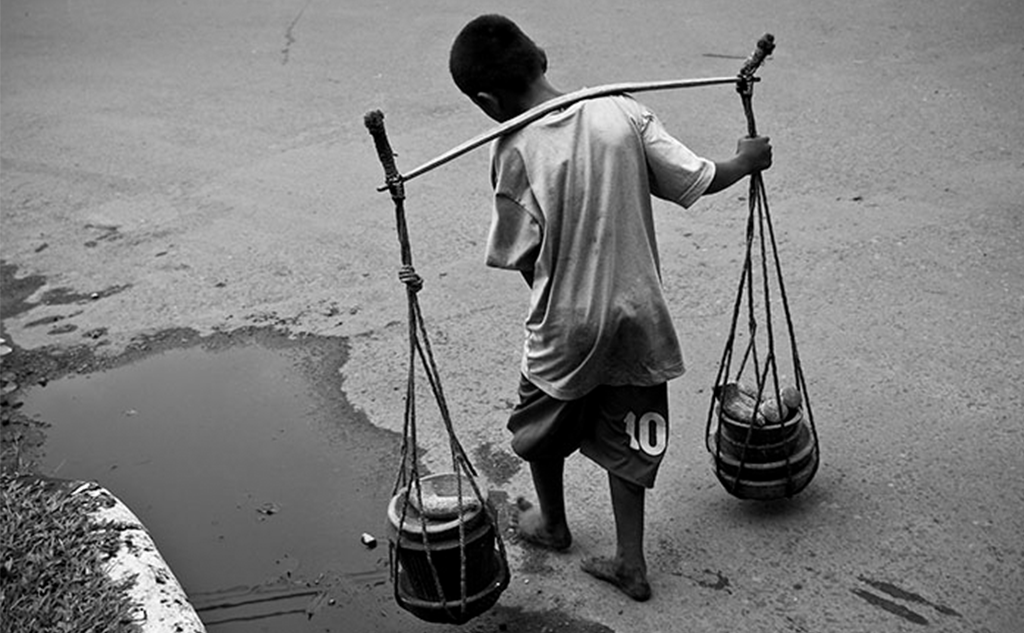
Slavery exists today. This is not in some faraway place but in our very own backyard.
Human trafficking or modern-day slavery is the third largest criminal industry in the world. Women, children and men are brought into Australia under false pretences, many ending up in forced labour, debt bondage, domestic and sexual servitude and forced marriage
Slavery flows into our homes, offices, and schools through the many products we purchase. As consumers, we are unwittingly contributing to the slavery of children. Across all industries, the production of goods and services that we may take for granted can disguise many forms of human trafficking.
Many of the goods we purchase come from countries with the highest absolute numbers of people in modern slavery, such as India, China, Pakistan, Bangladesh, Turkmenistan, and Uzbekistan.
On 30 July we commemorate the World Day Against Trafficking in Persons. In addition, 2021 is the International Year for the Elimination of Child Labour.
Statistics from the ILO and UNICEF highlight the fact that child labour has risen to 160 million in the last 4 years. 79 million are working in hazardous conditions. They also warn that an additional 9 million children are at risk because of COVID-19.
Whether they are trafficked to pick cocoa in West Africa, forced to dig for minerals needed for our electronics, or made to work long hours to produce Brazilian footwear, slavery of children is on the rise.
The 2020 report on child labour by research organisation NORC at the University of Chicago estimated that 1.5 million children are working to produce chocolate mainly in the Ivory Coast.
We can make a difference by choosing what chocolates we buy, supporting stores, chocolate companies and producers who are doing the right thing.
Cotton is found in 40% of textiles and it is estimated that there are 300 million cotton farmers in 80 countries. We are often unaware of the human cost involved in producing textiles – from germination to the cut and trim of the garment.
China produces 22% of the world’s cotton but it is a matter of grave concern that more than one million Uyghurs and Turk Muslims from the Xinjiang Province are forced into vocational training work in factories and on farms. Some are forced to work in factories in other Chinese provinces. They cannot refuse to work for fear of repercussions for themselves and/or their families.
Many of the factories in China use Uyghur forced labour to supply global brands ranging from garments to electronics. These goods end up on our shelves here in Australia. We need to stand with the Uyghurs by introducing legislation to suspend the importation of goods using Uyghur Forced Labour in Xinjiang and other parts of the PRC. Senator Rex Patrick has introduced a new bill into Parliament to ban the importation of goods into Australia that are produced in whole or part by forced labour.
Some companies have also signed the Turkmenistan cotton pledge to not knowingly source Turkmen cotton for the manufacturing of the products until the Government of Turkmenistan ends the practice of forced labour in its cotton sector.
We can make a difference in the elimination of forced labour by being mindful of purchasing slave free products – clothing (uniforms) and accessories, electronics, coffee and tea (in the Staff Room), seafood and Fair Trade/Utz/Raintree Forest and sustainably certified chocolate as advertised on the packaging.
The Covid Fashion Guide from Baptist World and Good On You Apps can be downloaded to help with our choices on the products we purchase
Finally, pressure can be put on politicians for better enforcement of laws to prevent slavery. We need new laws to ensure companies are meeting their responsibilities to end slave labour.
We might think that we are too small to make a difference but I quote the Dalai Lama who wisely said that, “If you think that you are too small to make a difference, try sleeping with a mosquito.”
Sr Margaret Ng
Photo by Henri Ismail is licensed under CC BY-NC-ND 2.0
